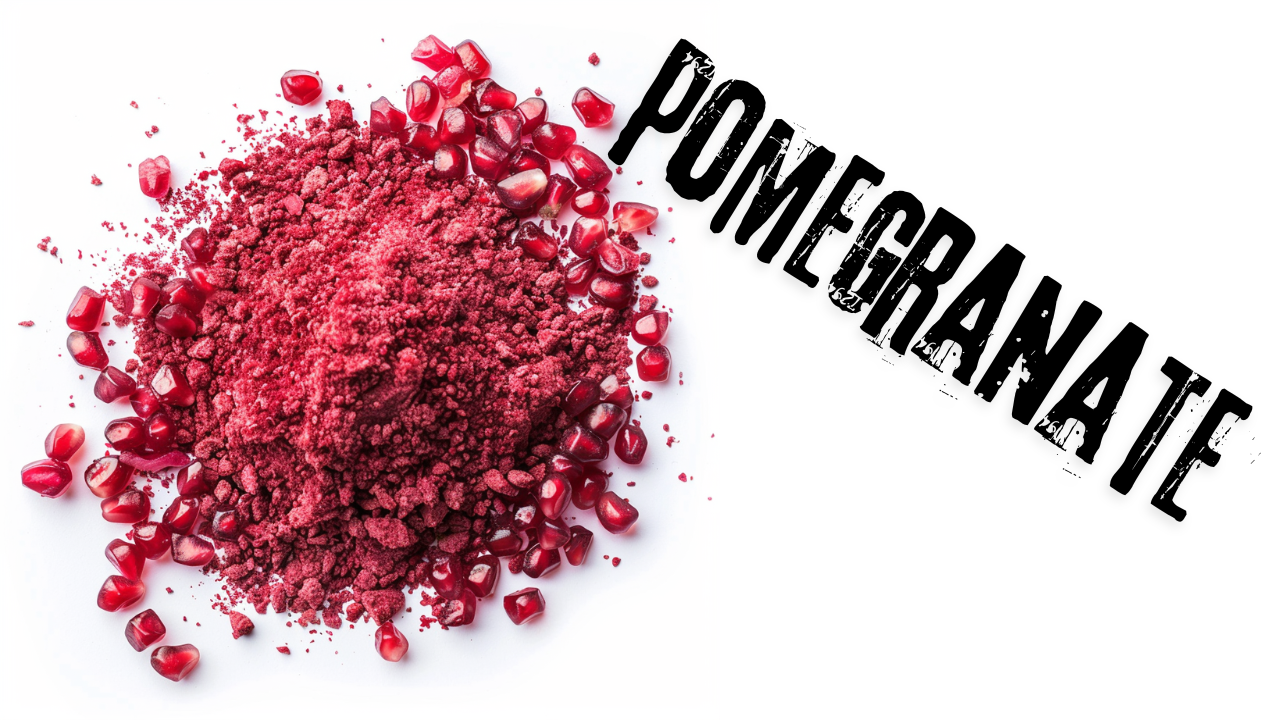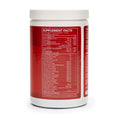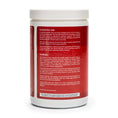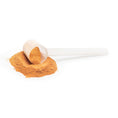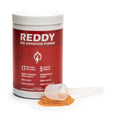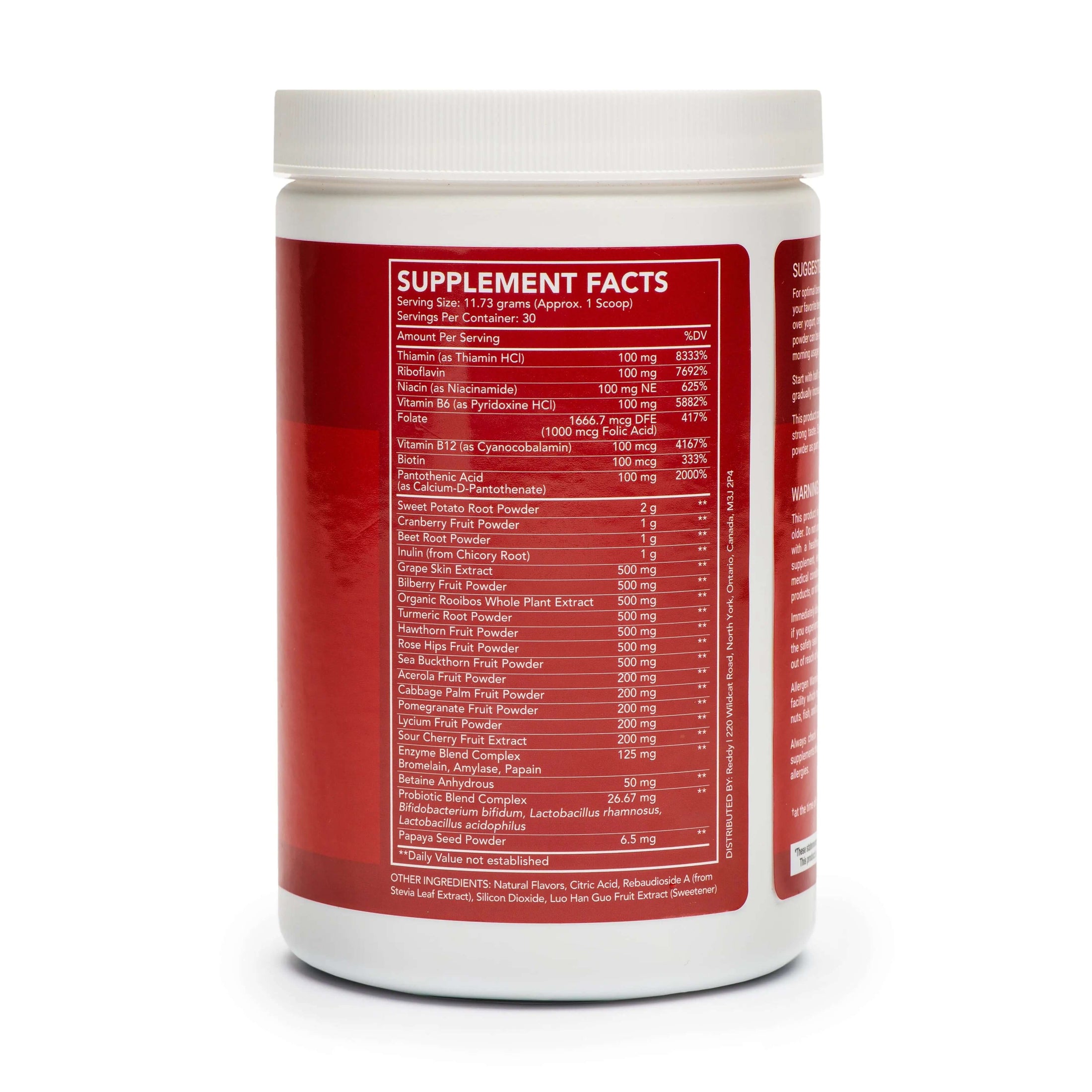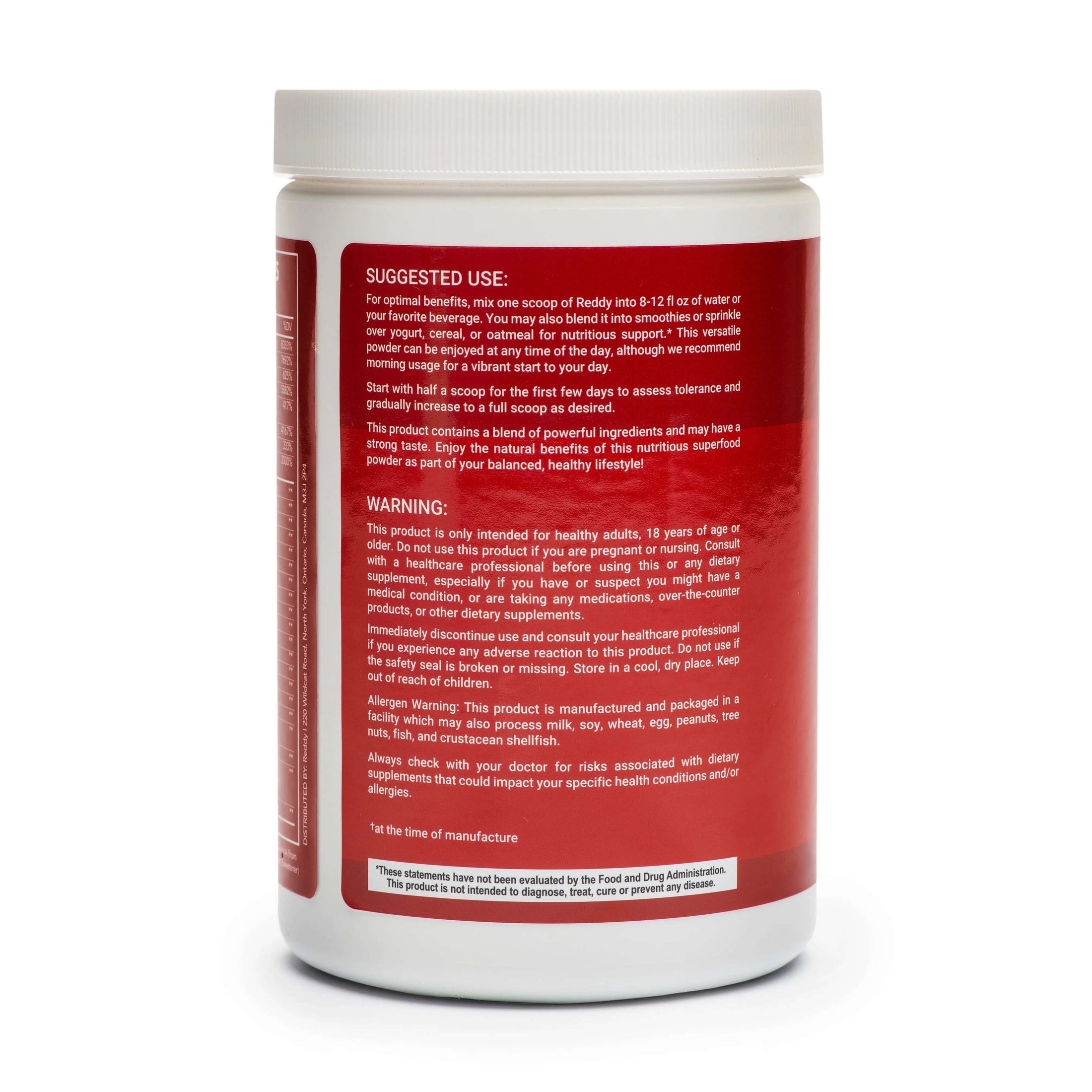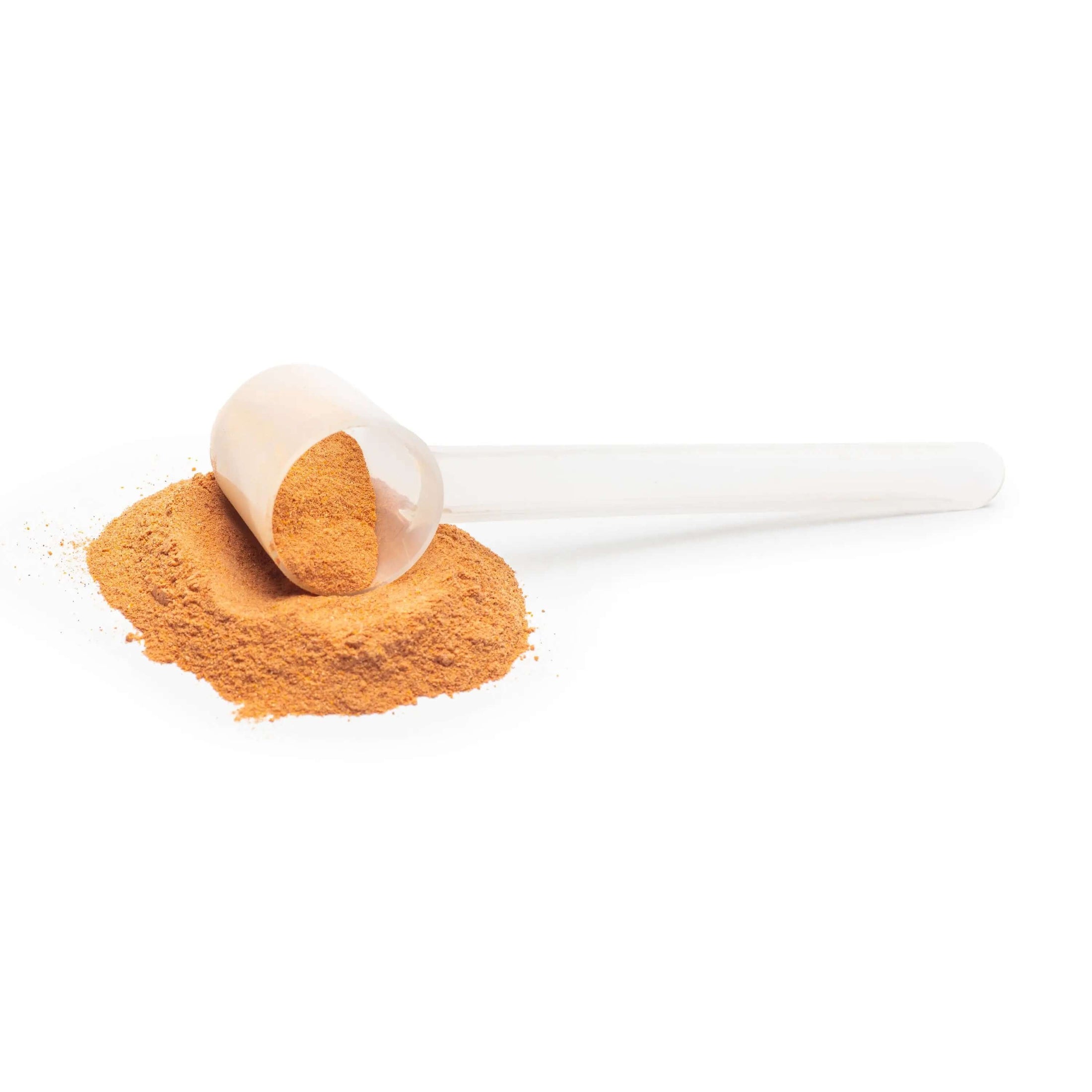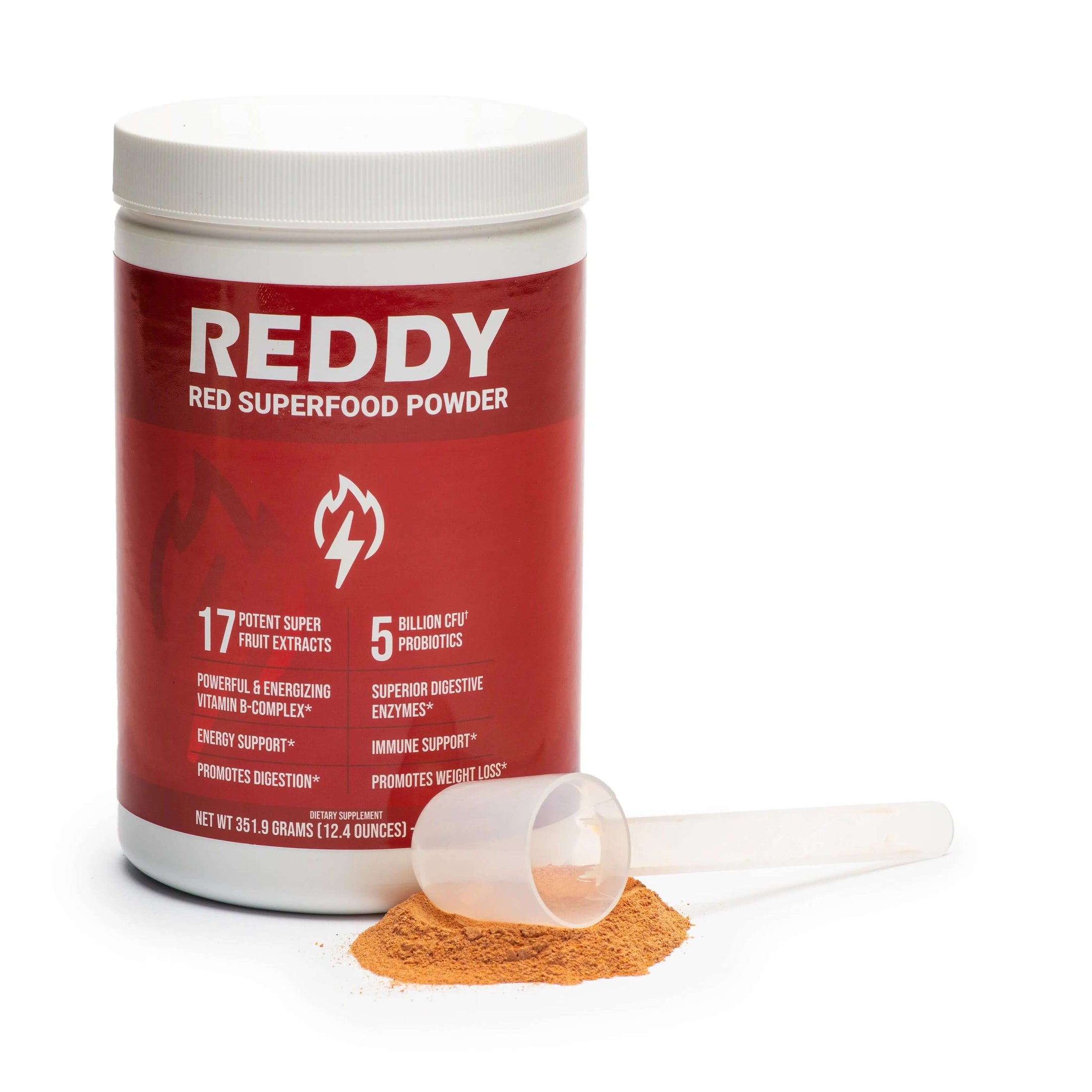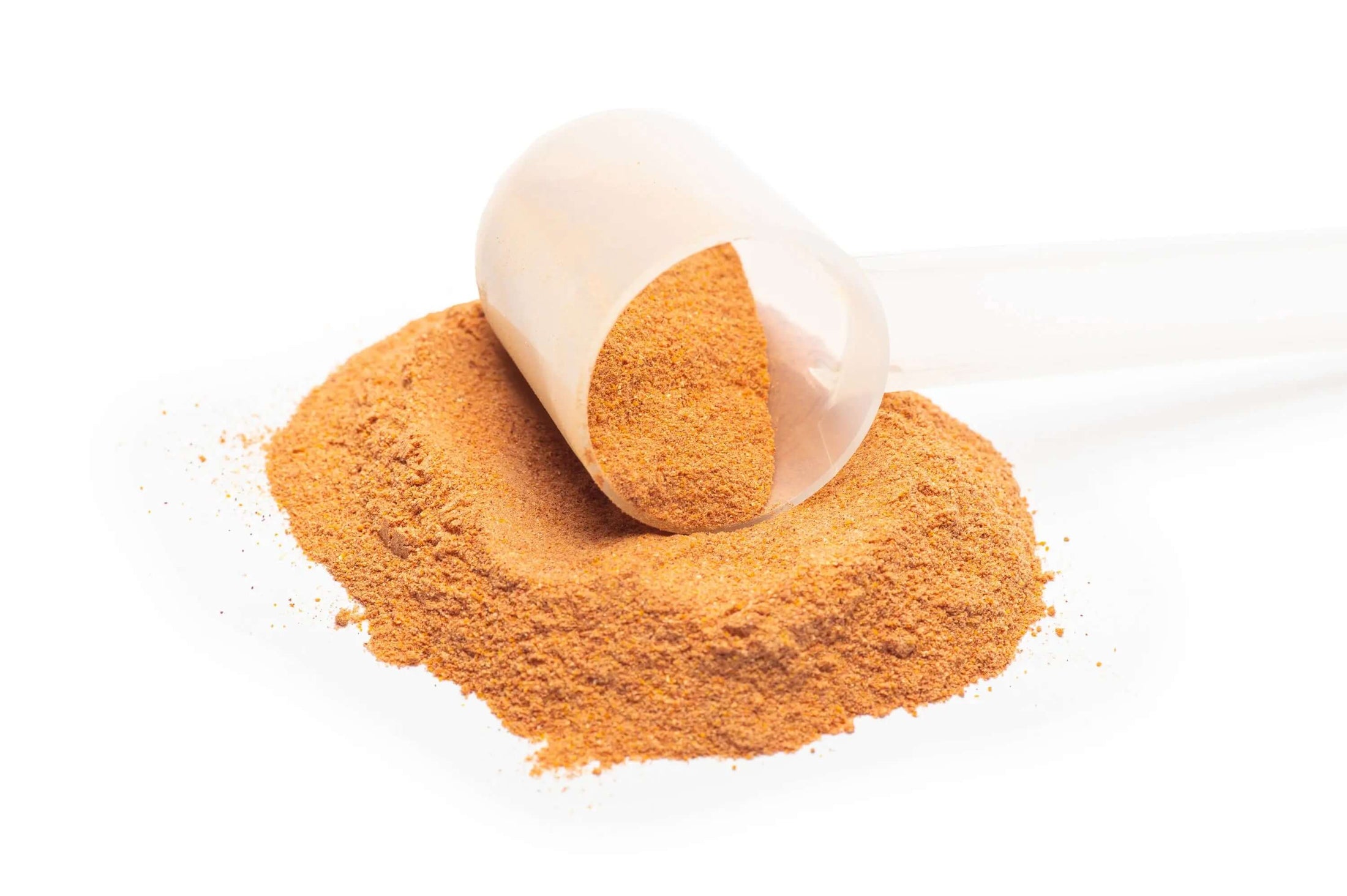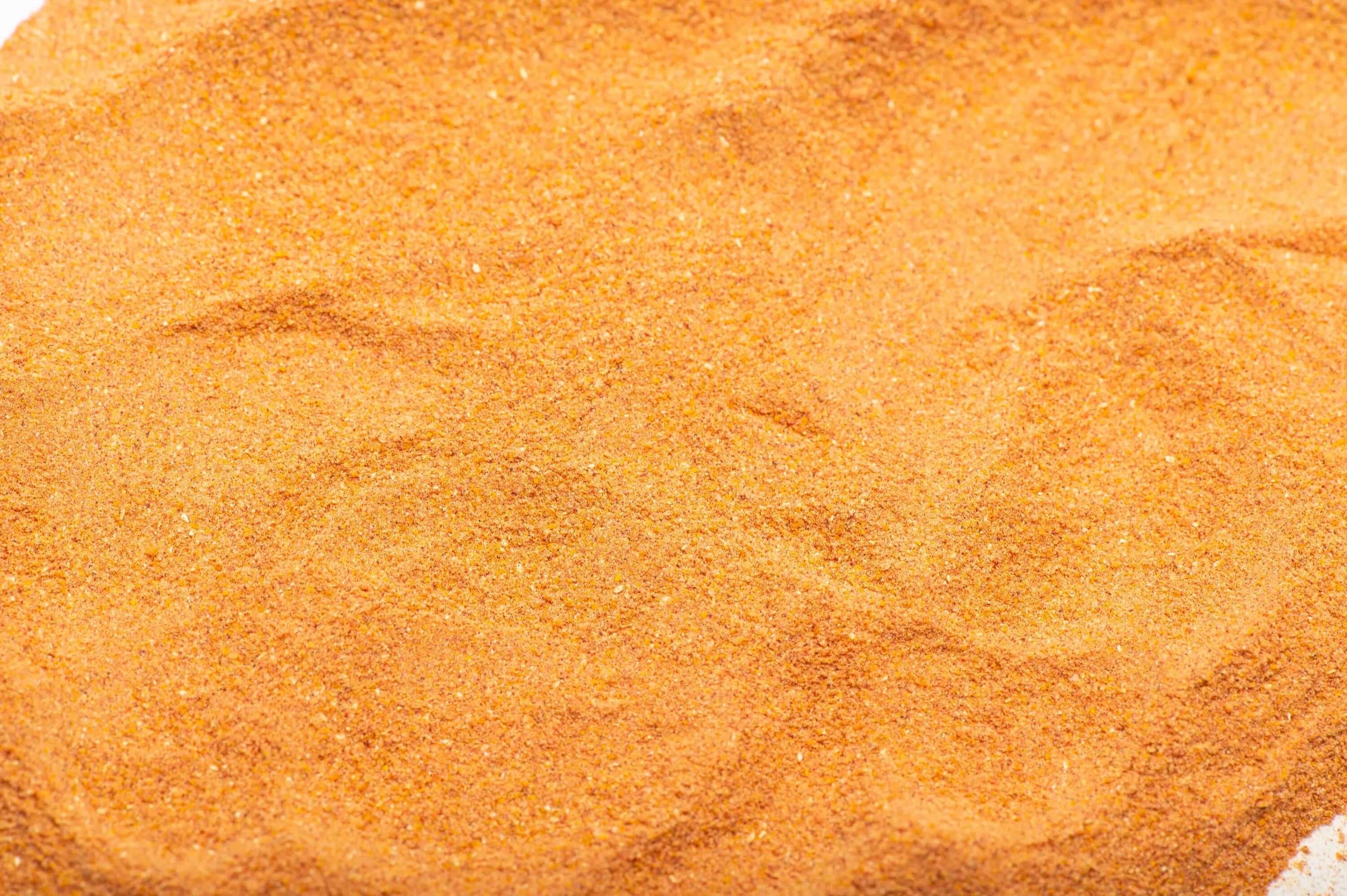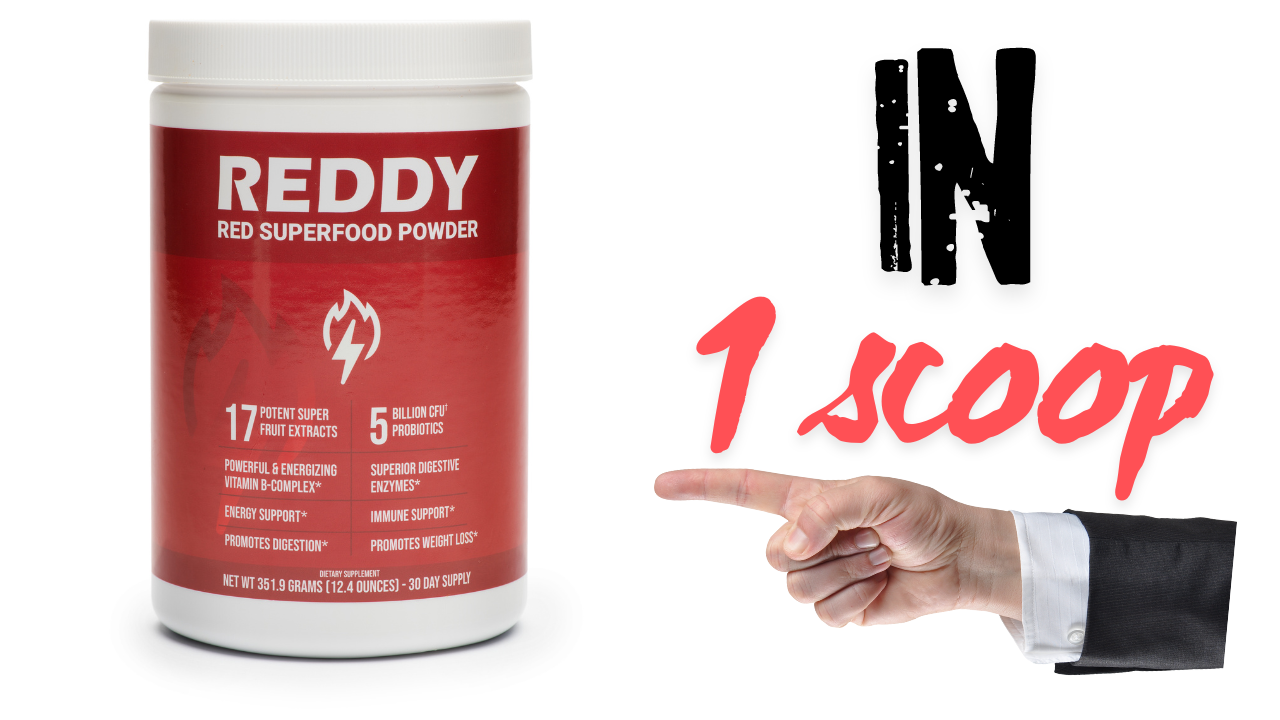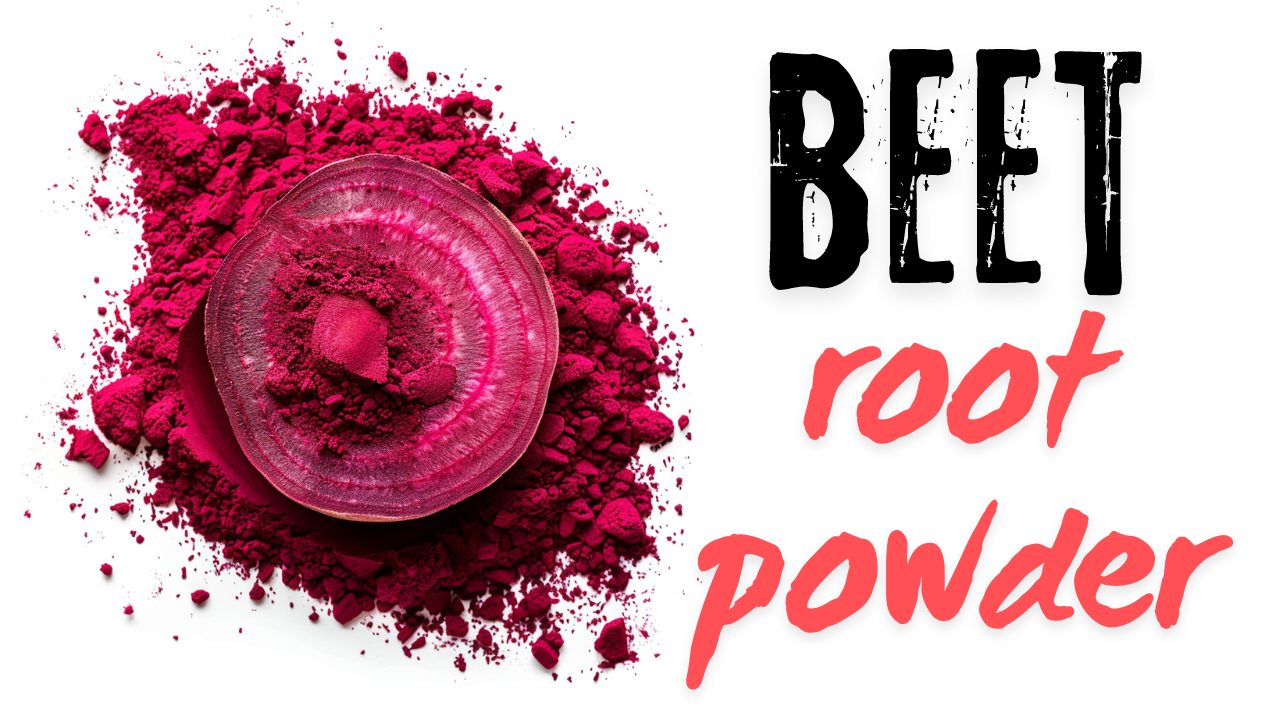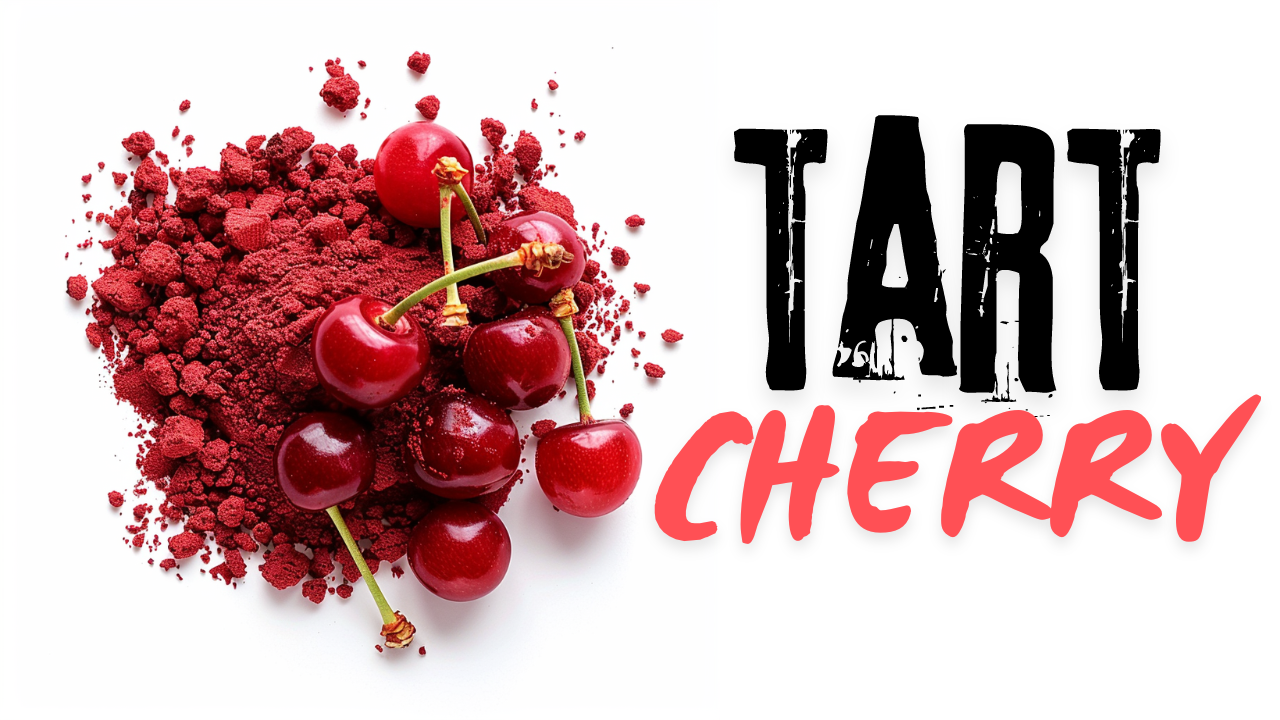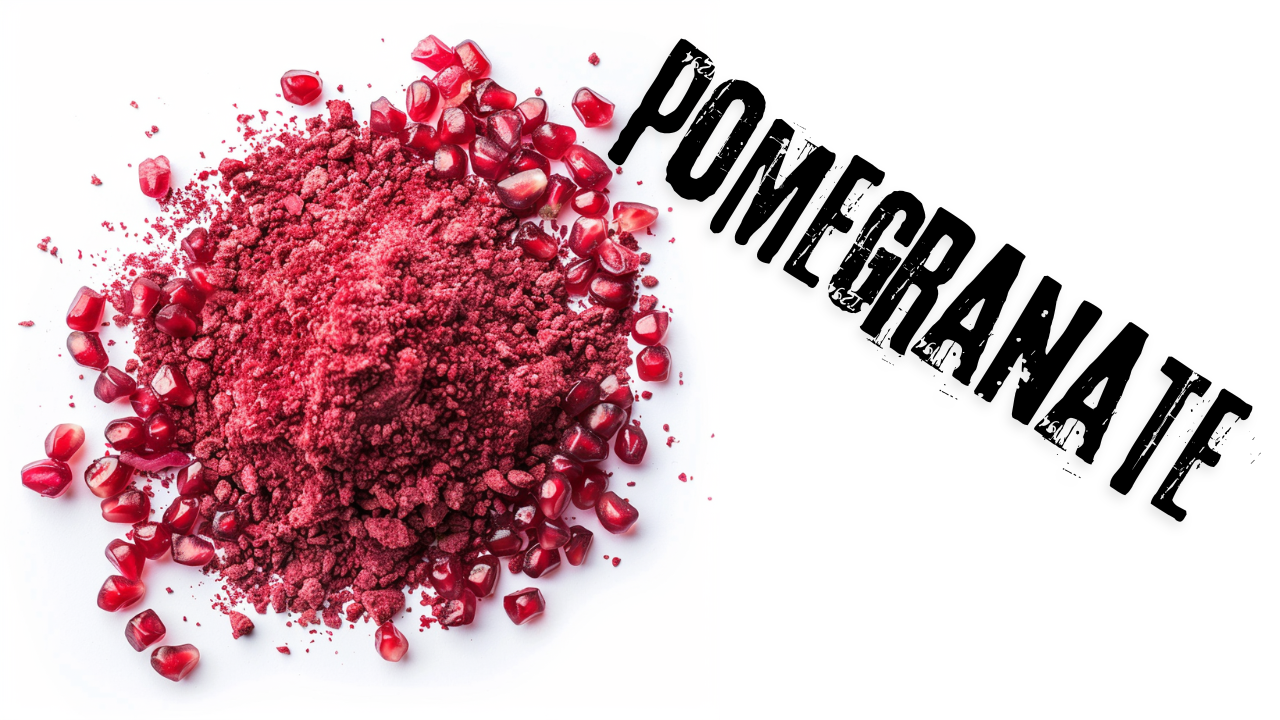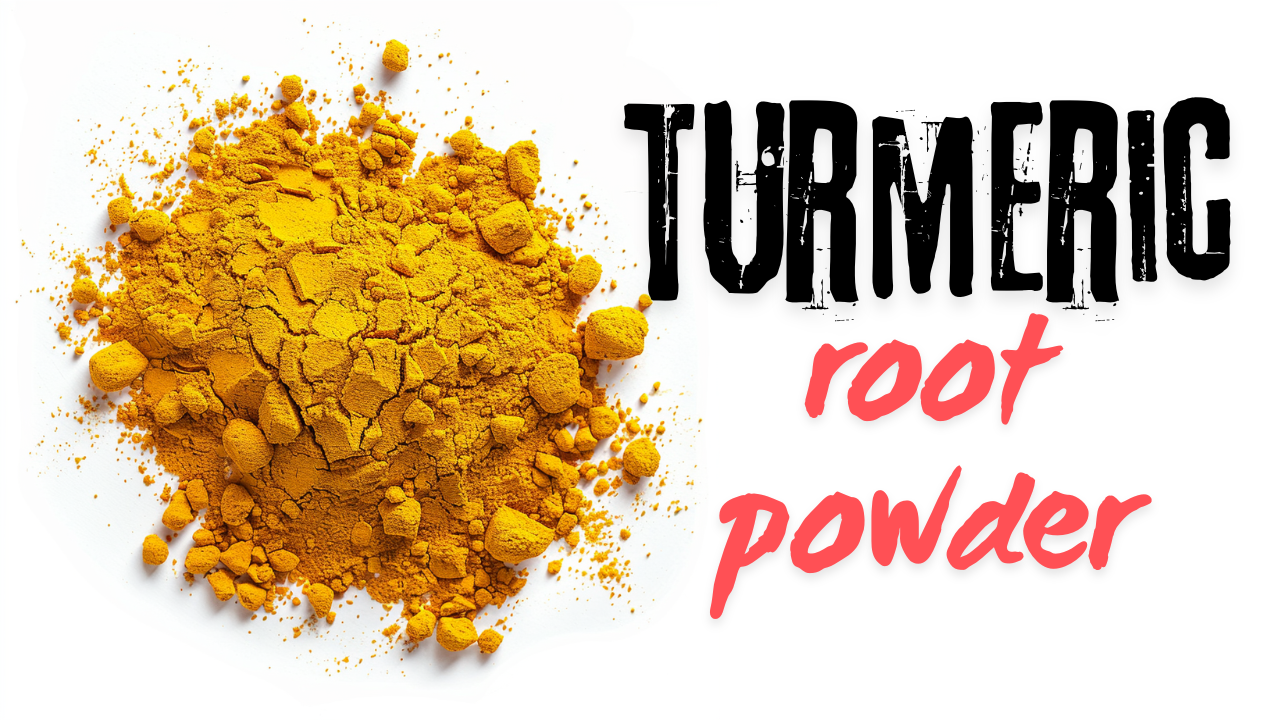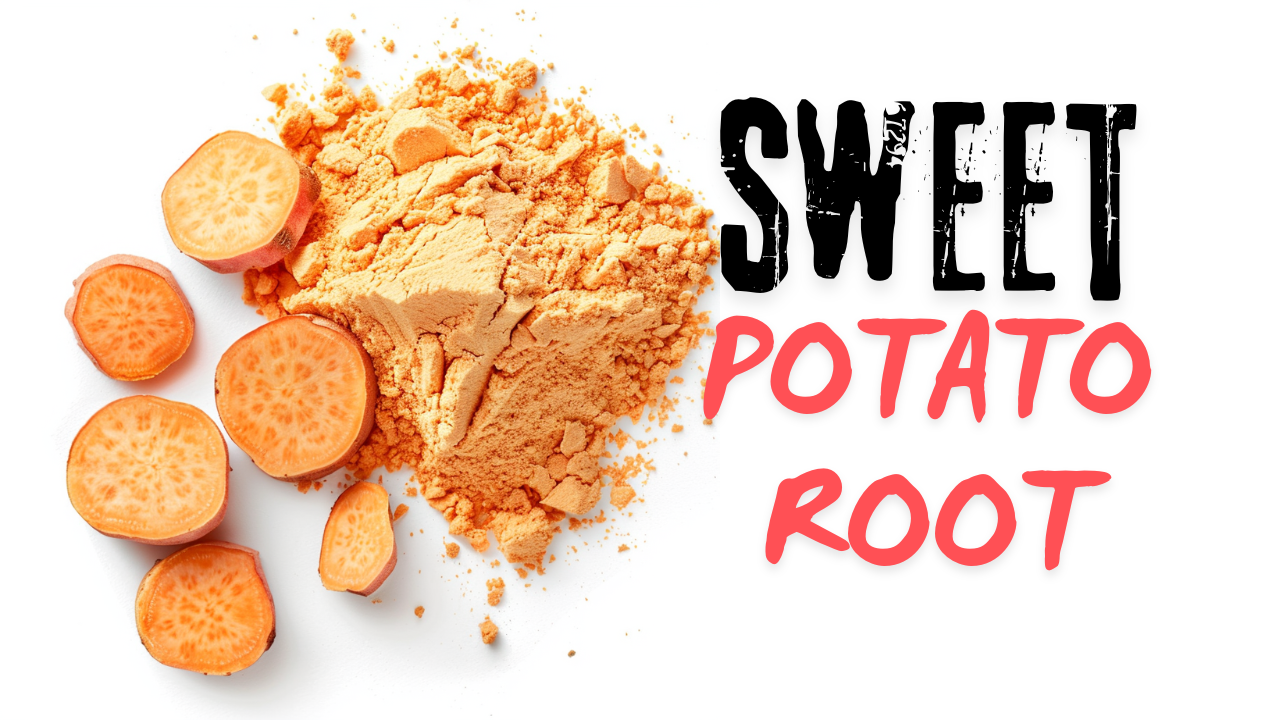Introduction
Pomegranate, a jewel-like fruit with a rich history, is celebrated for its impressive nutritional profile and numerous health benefits. Known for its sweet-tart flavor and vibrant color, pomegranate is packed with essential vitamins, minerals, and powerful antioxidants. In this comprehensive guide, we'll explore the benefits, uses, and ways to incorporate pomegranate into your diet. Notably, pomegranate is a key ingredient in our Reddy Red Superfood Powder, enhancing its nutritional profile and health benefits.
Table of Contents
| Heading | Sub-Topics |
|---|---|
| What is Pomegranate? | Origins and History, Botanical Characteristics |
| Nutritional Profile of Pomegranate | Vitamins and Minerals, Antioxidant Properties, Phytochemical Compounds |
| Health Benefits of Pomegranate | Heart Health, Anti-Inflammatory Properties, Digestive Health, Immune System Support, Weight Management, Skin Health |
| Uses of Pomegranate | Culinary Uses, Dietary Supplements, Skincare Applications |
| Incorporating Pomegranate into Your Diet | Fresh Pomegranate Seeds, Pomegranate Juice, Pomegranate Powder, Recipes Featuring Pomegranate |
| Potential Side Effects and Precautions | Possible Allergic Reactions, Who Should Avoid Pomegranate?, Safe Consumption Practices |
| Research and Studies on Pomegranate | Clinical Studies, Key Findings, Future Research Directions |
| Frequently Asked Questions | How much pomegranate should I consume daily?, Can pomegranate improve heart health?, Are there any side effects of pomegranate?, How can I use pomegranate powder?, Is pomegranate safe for children?, Can pomegranate help with weight loss? |
| Conclusion | Summary of Benefits, Final Thoughts |
What is Pomegranate?
Origins and History
Pomegranate, scientifically known as Punica granatum, is native to the Middle East and has been cultivated for thousands of years. This ancient fruit is mentioned in historical texts and religious scriptures, celebrated for its health benefits and symbolic meanings. Today, pomegranate is grown in various parts of the world, including the Mediterranean region, India, and parts of the United States.
Botanical Characteristics
Pomegranate is a deciduous shrub or small tree that produces large, round fruits with thick, leathery skin. Inside the fruit are hundreds of edible seeds called arils, which are encased in juicy, red pulp. The seeds are surrounded by a bitter-tasting white pith that is generally not consumed.
Nutritional Profile of Pomegranate
Vitamins and Minerals
Pomegranate is rich in essential vitamins and minerals, including vitamins C, K, and several B vitamins, as well as minerals like potassium, magnesium, and iron. These nutrients are crucial for maintaining good health and supporting various bodily functions.
Antioxidant Properties
Pomegranate is renowned for its high antioxidant content. It contains powerful antioxidants such as punicalagins, anthocyanins, and ellagic acid, which help protect the body from oxidative stress and free radical damage.
Phytochemical Compounds
In addition to antioxidants, pomegranate contains various beneficial phytochemicals and polyphenols. These compounds contribute to its health-promoting properties, such as anti-inflammatory and immune-boosting effects.
Health Benefits of Pomegranate
Heart Health
Pomegranate supports heart health by improving cholesterol levels, reducing blood pressure, and enhancing blood vessel function. The antioxidants in pomegranate help protect the cardiovascular system from oxidative damage and reduce the risk of heart disease.
Anti-Inflammatory Properties
Pomegranate has strong anti-inflammatory properties that help reduce inflammation throughout the body. This can be beneficial for individuals with inflammatory conditions such as arthritis and cardiovascular disease.
Digestive Health
The fiber content in pomegranate supports digestive health by promoting regular bowel movements and maintaining a healthy gut microbiome. Pomegranate can help alleviate digestive issues and improve overall digestive function.
Immune System Support
Pomegranate is rich in vitamin C and other antioxidants that help strengthen the immune system. Regular consumption can enhance the body's natural defenses and reduce the risk of infections and illnesses.
Weight Management
Pomegranate is low in calories and high in fiber, making it an excellent addition to a weight management diet. Its fiber content helps keep you full for longer, reducing overall calorie intake and supporting healthy weight loss.
Skin Health
The antioxidants and vitamins in pomegranate promote healthy skin by protecting against oxidative stress and supporting collagen production. Regular consumption of pomegranate can help improve skin elasticity and reduce the signs of aging.
Uses of Pomegranate
Culinary Uses
Pomegranate can be used in a variety of culinary applications. The seeds (arils) can be eaten on their own or added to salads, yogurt, smoothies, and desserts to enhance flavor and nutritional value. Pomegranate juice is also a popular beverage that provides a refreshing dose of antioxidants.
Dietary Supplements
Pomegranate is available in various supplement forms, including capsules, tablets, and powders. These supplements provide a convenient way to enjoy the health benefits of pomegranate. Our Reddy Red Superfood Powder contains organic pomegranate powder, enhancing its nutritional profile.
Skincare Applications
The antioxidants and vitamins in pomegranate make it a popular ingredient in skincare products. Pomegranate extract is used in creams, serums, and masks to promote healthy, youthful skin and protect against oxidative stress.
Incorporating Pomegranate into Your Diet
Fresh Pomegranate Seeds
Fresh pomegranate seeds are delicious and can be eaten on their own or added to fruit salads, yogurt, and desserts. Their sweet-tart flavor adds a unique twist to any dish.
Pomegranate Juice
Pomegranate juice is a tasty and nutritious way to enjoy the benefits of this superfruit. It can be consumed on its own or mixed with other fruit juices for a refreshing beverage.
Pomegranate Powder
Pomegranate powder is versatile and can be easily incorporated into your diet. It can be added to smoothies, yogurt, oatmeal, and baked goods. Our Reddy Red Superfood Powder contains pomegranate powder, making it easy to include this superfood in your daily routine.
Recipes Featuring Pomegranate
Incorporate pomegranate into your diet with various recipes. Add pomegranate seeds to salads, use pomegranate juice in sauces and dressings, or bake pomegranate into muffins and breads for a nutritional boost.
Potential Side Effects and Precautions
Possible Allergic Reactions
While pomegranate is generally safe for most people, some individuals may experience allergic reactions. Symptoms can include itching, swelling, and digestive discomfort. If you experience any adverse reactions, discontinue use and consult a healthcare provider.
Who Should Avoid Pomegranate?
Individuals with certain medical conditions or those taking specific medications should consult their healthcare provider before consuming pomegranate. Pregnant and breastfeeding women should also seek medical advice before adding pomegranate to their diet.
Safe Consumption Practices
To avoid potential side effects, consume pomegranate in moderation and follow recommended dosage guidelines if using supplements. Starting with a small amount is advisable to ensure you do not have an adverse reaction.
Research and Studies on Pomegranate
Clinical Studies
Numerous clinical studies have highlighted the health benefits of pomegranate. Research has shown positive effects on cardiovascular health, inflammation, and overall well-being.
Key Findings
Key findings from research include the ability of pomegranate to improve heart health, reduce inflammation, and enhance immune response. The antioxidants in pomegranate have been shown to protect against oxidative stress and improve overall health.
Future Research Directions
Future research aims to further explore the wide range of health benefits provided by pomegranate. This includes its potential role in preventing chronic diseases and its impact on overall health and well-being.
Frequently Asked Questions
How much pomegranate should I consume daily?
A typical daily serving of pomegranate can vary, but consuming a half to a full pomegranate or a comparable amount in supplement form is common. Follow product-specific recommendations or consult a healthcare provider for personalized advice.
Can pomegranate improve heart health?
Yes, pomegranate is known for its positive effects on heart health. The antioxidants in pomegranate help improve cholesterol levels, reduce blood pressure, and enhance blood vessel function.
Are there any side effects of pomegranate?
While generally safe, some people may experience allergic reactions or digestive issues. It's important to start with a small amount to ensure you do not have an allergy.
How can I use pomegranate powder?
Pomegranate powder can be added to smoothies, yogurt, oatmeal, and baked goods. It’s also a key ingredient in our Reddy Red Superfood Powder, making it easy to include in your daily routine.
Is pomegranate safe for children?
Yes, pomegranate is safe for children when consumed in moderation. However, it's always best to consult a healthcare provider before adding new supplements to a child's diet.
Can pomegranate help with weight loss?
Yes, pomegranate can support weight management due to its low calorie and high fiber content, which helps increase feelings of fullness and reduce overall calorie intake.
Conclusion
Pomegranate is a powerhouse of nutrients and antioxidants, offering a wide range of health benefits. From supporting heart health and reducing inflammation to aiding in weight management and boosting the immune system, this vibrant superfruit packs a significant nutritional punch. Whether you enjoy it fresh, as juice, or as part of our Reddy Red Superfood Powder, incorporating pomegranate into your routine can enhance your overall wellness. With ongoing research and increasing popularity, pomegranate continues to be recognized for its potent health benefits.

